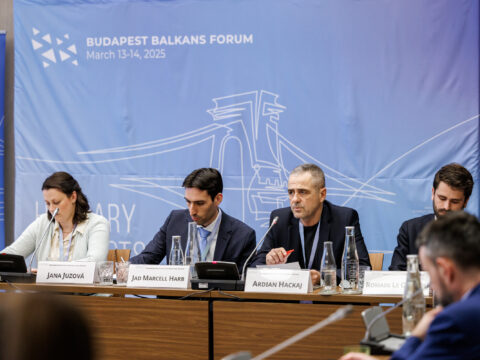The ongoing debate on EU policies reform should include WB countries in their efforts to address the convergence gap between the region and the EU. At last week’s EESC’s high-level conference “Continuing the Success Story of EU Enlargement – Bringing Benefits to the Western Balkans in Advance of Accession.” CDI Executive Director Ms. Hackaj underscored the necessity for “…early and gradual access of WBs to EU cohesion toolbox, with a focus on social and economic development at the local level, as crucial for meaningful convergence”.
Following the 2020 reform of the European Union’s enlargement policy, there’s an urgent need to reassess its effectiveness. Despite the reform’s intentions, developmental gaps in the Western Balkans (WBs) have increased.
While the recently adopted Growth Plan for the Western Balkans introduces promising novelties, such as a robust conditionality and focus on reforms, it needs to be further aligned with the current policy reforms processes and lead to frontloading of Cohesion principles for the next MFF for the WB region. Recommendations from the European Economic and Social Committee on the Growth Plan include establishing a Facility Scoreboard, increasing oversight, and promoting greater societal engagement, marking steps toward reforming the enlargement process and extending its benefits before full EU membership.
“For the Growth Plan to achieve its objectives, – stated Ms. Hackaj, – alignment with ongoing EU policy assessments, particularly regarding EU Cohesion, the Single Market, and Common Agricultural Policies, is essential.”
Solidarity is paramount, especially as less developed aspiring EU member countries open their markets. Access to Cohesion Policy toolbox is crucial to protect economies and mitigate the adverse effects of market opening.









